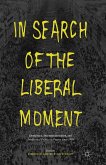Why has the collapse of Communism resulted in so much disappointment for the hopeful millions of Eastern Europe? In this original and provocative book Philip Longworth argues that their predicament is only partly due to the imposition of the Soviet system but rather they are the heirs of misfortune which dates back centuries. In exploring the origins of current problems, this sweeping history ranges from the present day to the time of Constantine the Great, from the Urals to the Mediterranean and the Baltic, and emphasises culture and society, as well as politics and economics. The resulting analysis provides the crucial, and until now much-needed, long-term background to the difficulties now facing Eastern Europe. This new perspective and the insight it brings will improve our understanding of this complex region and be of immense value to all who want to understand Eastern Europe's past and present.
Reviews of first edition:
'I warmly commend The Making of Eastern Europe...a first-rate piece of historical analysis...I find Professor Longworth's comments constantly illuminating on a region of Europe which I had up to now thought I knew reasonably well.' - Erik de Mauny, Financial Times
'A rich and varied work...Longworth's is a bold and always arresting study.' - Jeremy Black, History Today
'I warmly commend The Making of Eastern Europe...a first-rate piece of historical analysis...I find Professor Longworth's comments constantly illuminating on a region of Europe which I had up to now thought I knew reasonably well.' - Erik de Mauny, Financial Times
'A rich and varied work...Longworth's is a bold and always arresting study.' - Jeremy Black, History Today








